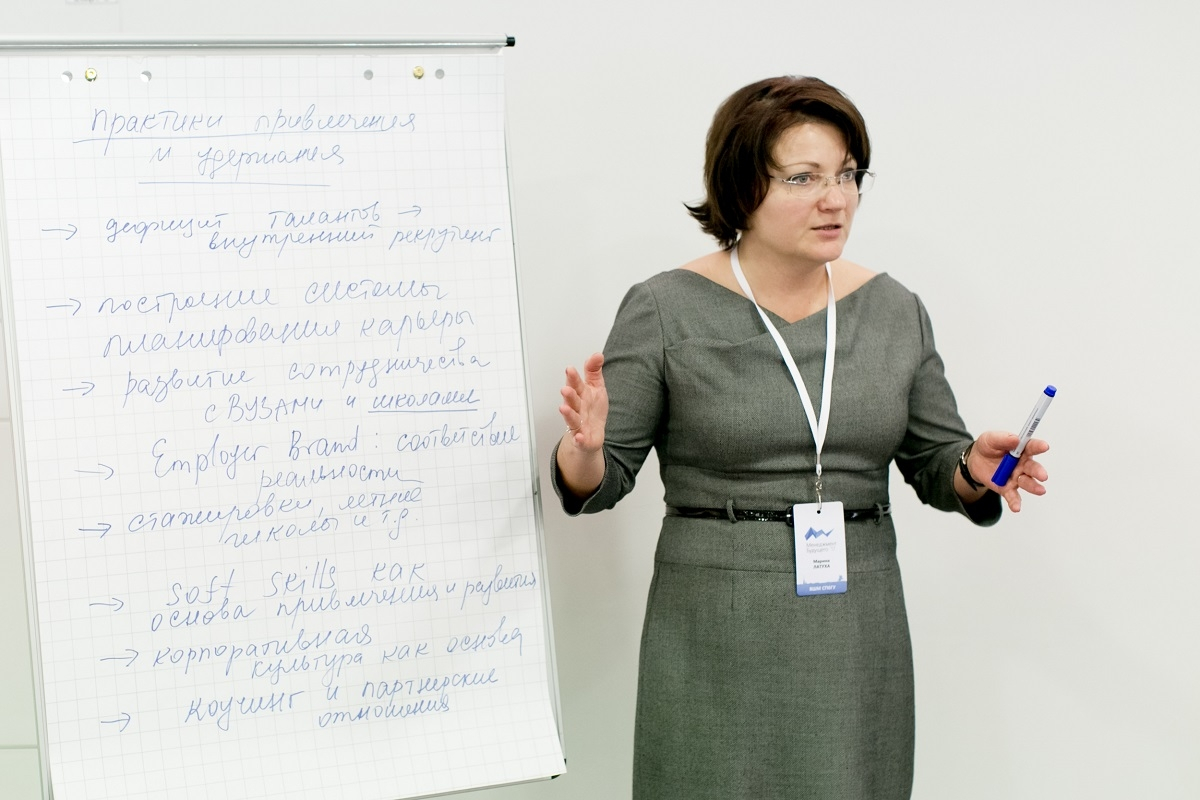Researchers from St Petersburg University: ’Female talent management gives companies a competitive advantage’

Experts from the Graduate School of Management at St Petersburg University (GSOM SPbU), headed by Marina Latukha, Professor in the Department of Organisational Behaviour and Personnel Management, have studied the effectiveness of personnel policies in 103 multinational companies in Russia.
The results of a large-scale research were published in the journal Employee Relations and proved a positive correlation between female talent development and recruitment initiatives and the performance of companies.
Functionally diverse teams led by women tend to perform better than those headed by men. This conclusion was also confirmed by researchers from the George Washington University. Moreover, the experts agree that the presence of women in companies results in more flexible leadership styles, effective communication, and a diversity of competences.
Marina Latukha and many other experts attribute the benefits of a diverse workforce to the fact that different talent groups have a positive impact on a company’s business results. Professor Latukha noted that gender balance in teams has a positive impact on the work of companies. The question that arises in this context is whether it is necessary to develop a management strategy that takes into account the differences between men and women. If so, would it not be a form of discrimination?
The issue of differences between men and women in management is automatically regarded as discriminatory. Many experts and managers, when asked about the differences, immediately dot their i’s and cross their t’s: there is no discrimination, everyone has equal rights and the same access to benefits from the organisation.
Marina Latukha, Professor in the Department of Organisational Behaviour and Personnel Management of St Petersburg University
’Does the word “discrimination” mean the same thing as the word “difference”? When we talk about equal opportunities, we often confuse the two. Managers forget that women and men are different: they make decisions in different ways; they are different physiologically; they employ different leadership styles; and so on. Does a company’s focus on taking these differences into account constitute a discriminatory policy? Definitely not,’ said Marina Latukha.
Focus on the characteristics of different groups of employees and their strengths has a positive effect on the image of a company as an employer and on its financial performance. This conclusion has been confirmed by the studies conducted by the University of Amsterdam, a management consulting firm McKinsey & Company, and researchers from the University of Cincinnati and Harvard University.
A new study by the Graduate School of Management at St Petersburg University shows that modern companies, if they want to win the competition for talent, must not only talk about non-discrimination and build the environment of diversity and inclusion, which ensures equal conditions for men and women, but also consider gender specifics in their management structures. The mere fact that women are employed does not directly affect the company’s performance. The positive effect is achieved through measures aimed at retaining and promoting talented female professionals.
This is why Professor Marina Latukha questions the effectiveness of quotas as a method of creating gender balance.
Female recruitment alone cannot have an impact on a company’s success. It requires a number of other measures aimed at talent development and retention.
Marina Latukha, Professor in the Department of Organisational Behaviour and Personnel Management of St Petersburg University
’The company’s attractiveness to talented women can be shaped by sending the “right signals”: gender-specific talent management systems may well generate interest in the organisation. For example, the opportunity to work remotely or have a flexible schedule may help retain effective female employees on parental leave, while special bonuses to help pay for babysitting services will encourage women to devote more time to work tasks,’ said Marina Latukha.
Professor Latukha explained that training and development programmes for building up ’male’ skills (such as negotiating in an aggressive environment) can help talented women to advance in their careers and become successful in managerial positions. This kind of involvement by the organisation is usually perceived positively by employees and creates loyalty. ’When a company values and uses talent diversity, when it knows how to manage it effectively, it forms the unique identity of the company and the basis for increasing its performance,’ said Marina Latukha.

